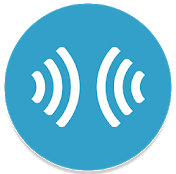
How to Speak English Fluently: 33 Easy Tips
Do you want to learn how to speak English well?
Read on for 33 solid tips that will help you speak English more fluently, in less time.
Our team includes language learners from different countries who picked up English as a second language as well as native English teachers, so these are all based on our own experiences.
From pronunciation practice to handy online resources, consider this your roadmap to becoming confident speaking English.
Contents
- 1. Get Clear on What Fluency Means
- 2. Immerse Yourself in English Every Day
- 3. Accept that English Grammar Has a Lot of Exceptions
- 4. Use Mirroring to Answer English Questions
- 5. Focus on Whole Phrases Instead of Single Words
- 6. Learn Intonation, Body Language and Gestures
- 7. Use Speech-to-text for Text Messaging
- 8. Talk Yourself Through Everyday Activities
- 9. Memorize and Use Conversation Starters
- 10. Share Your Opinions Online
- 11. Get Direct Feedback
- 12. Read Along with Podcasts
- 11. Learn Some English Slang
- 12. Look Out for Common Pronunciation Issues
- 13. Pay Attention to the Sounds Native Speakers Use
- 14. Record Your Own English-language Audiobooks
- 15. Record What You Want to Learn, Then Listen to It Throughout the Day
- 16. Think Directly in English Instead of Translating
- 17. Set Specific Language Goals
- 18. Figure Out Your Weak Spots
- 19. Don’t Be Afraid to Make Mistakes When Talking
- 20. Record Your Mistakes
- 21. Review and Test Yourself Often
- 22. Practice Using New Words Right Away
- 23. Expand Your Vocabulary with Spaced Repetition
- 24. Learn Basic Grammar Rules
- 25. But Don’t Worry Too Much About Grammar
- 26. Get Comfortable First with the English Words You Know
- 27. Learn from Everyone Who Speaks English
- 28. Hire a Personal Tutor
- 29. Make Sure to Use Resources Appropriate for Your Level
- 30. Consider a Big Move
- 31. Pre-plan Conversations That You’ll Need to Have
- 32. Sing Some Karaoke
- 33. Remind Yourself Why You Want to Speak English
- Helpful Resources for Learning to Speak English Fluently
- FAQs About How to Speak English Well
- And One More Thing...
Download: This blog post is available as a convenient and portable PDF that you can take anywhere. Click here to get a copy. (Download)
1. Get Clear on What Fluency Means
You know that you want to become fluent in English, but what does that mean?
There are two parts to fluency: knowing the language and knowing how to produce the language.
Being fluent means that you can use the English language comfortably. You can communicate freely and you can have conversations with native speakers without having to constantly look for help.
Fluency can also be seen in how you speak. You can know plenty of English vocabulary, but if you have to pause or repeat a lot when speaking, your fluency might not be so obvious to someone. If you speak very slowly or in a very flat, unemotional manner, then you won’t sound very fluent, either.
On the other hand, sounding fluent doesn’t mean you actually are speaking good English.
To be fluent in English, you need to master both the language and how you speak it!
There’s often an expectation that you must know a certain number of words for fluency. But it’s important to remember that you can’t just study the words and grammar. It can be scary, but you’ll also need to practice speaking.
The tips below will help you master your speaking skills so that you can speak proper English and sound good doing it. Don’t forget how important both features of fluency are!
To read about how many words you need to know to be considered fluent, read this post:
https://www.fluentu.com/blog/how-many-words-do-i-need-to-know/
2. Immerse Yourself in English Every Day
Studying English for an hour once a week isn’t usually enough to make any real progress. The best way to quickly improve your English is to spend at least a few minutes practicing every day.
There’s a special language learning method called “immersion.” With immersion, you try to surround yourself with the language as much as you can in your day-to-day activities. You want English to become part of your daily schedule so that you’re frequently learning and practicing until it becomes natural to hear and speak the language.
You can create immersion in a lot of fun, creative ways, besides just constantly studying English from a book or a course! You can switch your phone settings to the English language. You can start watching and listening to English movies and songs, keep an English diary or volunteer in a place where English is required.
Immerse yourself in English as much as possible every time you study. Challenge yourself to listen to, read and even say things in English that you think might be too difficult for you. If you want to speak English fluently, you need to make it an essential part of your everyday life.
Watching authentic movies and videos can help with this, by exposing you to the natural sounds of the language.
FluentU takes authentic videos—like music videos, movie trailers, news and inspiring talks—and turns them into personalized language learning lessons.
You can try FluentU for free for 2 weeks. Check out the website or download the iOS app or Android app.
P.S. Click here to take advantage of our current sale! (Expires at the end of this month.)

3. Accept that English Grammar Has a Lot of Exceptions
Sometimes, you can find patterns in English grammar, but other times English doesn’t make sense at all.
For example, why are “read” (pronounced reed) and “read” (pronounced red) the same word, but said differently depending on whether you’re speaking in the past or present tense? Or why is “mice” the plural of “mouse,” but “houses” is the plural of “house”?
Unfortunately, there are many exceptions to English rules. It’s easy to get stuck on learning how to speak English properly if you try to find a reason for everything. Sometimes, English is just weird! So the best thing to do is just memorize the strange exceptions and move on.
4. Use Mirroring to Answer English Questions

Listen carefully when someone asks you a question in English and you’ll answer perfectly every time. English questions are like mirrors:
- Does he…..? → Yes, he does.
- Can she….? → Yes, she can.
- Is it….? → No, it isn’t.
If someone asks you a question and you’re not sure how to answer, start by thinking about the words used in the question. The person has already said most of the words you need to make your answer.
Instead of just memorizing English grammar, start to look for patterns like this one. There are a lot of simple ways to “cheat” and make it easier to remember the right words.
5. Focus on Whole Phrases Instead of Single Words
Speaking English fluently means being able to express your thoughts, feelings and ideas. Your goal is to speak English in full sentences, so why not learn it in full sentences?
You’ll find that English is more useful in your everyday life if you study whole phrases, rather than just vocabulary and verbs. Start by thinking about phrases that you use frequently in your native language, and then learn how to say them in English.
6. Learn Intonation, Body Language and Gestures

True English fluency is about more than just vocabulary and grammar. If you can figure out intonation, body language and gestures, you’ll really look and sound like a native speaker.
Intonation is the “rise and fall” or tone changes in how a person speaks. Body language is how a person uses their own body to support (or go against) what they mean. Gestures are hand and body movements that work together with what someone is saying.
It’s not easy to learn these three things because they seem very natural. One way to learn is to just watch how native English speakers communicate with each other.
One way to study these aspects of the language is by hiring an English teacher, if that’s in your budget. Another is watching YouTube videos, if you can avoid getting distracted with other videos.
7. Use Speech-to-text for Text Messaging

You can practice speaking English even when you’re texting people. Just speak your texts instead of typing them!
You may need to change your settings to enable speech-to-text first. Then, find the “speech” option on whatever keyboard you’re using. Often, you just need to tap a microphone icon on the right side of the keyboard.
Start speaking, and your words will appear on the screen. No one hears you talk, but you still get practice. Pretty good deal, huh?
But what if most of your communication is with friends and family in your native language? Microsoft Translator has a way around this. Check to see if your native language is included in Microsoft’s Conversations feature—if it is, you can speak out loud in English, and have your words automatically translated into text in your native language.
Your chat partner can speak in your native language and have their words show up for you in English. This way, you get English speaking (and reading) practice while having the conversations you’d be having anyway.
8. Talk Yourself Through Everyday Activities
Think about all the things you might do that have a beginning, a middle and an end. For example, following a recipe when cooking dinner or putting together a piece of furniture.
Try writing out instructions for a process in English and make them as simple as possible.
For cooking something, your instructions might start like this:
- Peel the garlic.
- Dice the garlic.
- Peel the onions.
- Slice the onions.
Once you have your instructions, follow them. In the meantime, say what you’re doing out loud. For example, “Now I’m cutting up the onions. Uh oh, my eyes are starting to water!”
A more challenging version of this would be to keep an audio diary. Record yourself on your phone describing your day or a specific experience, from beginning to end. This would force you to learn words that you often use in everyday life (or think about!), and you’ll also get more comfortable with speaking smoothly.
9. Memorize and Use Conversation Starters

You might miss out on opportunities to practice English speaking if you just can’t think of anything to say.
An easy solution to this is to memorize conversation starters or ideas for beginning conversations. You can find lots of these online. For example, here’s a list of 250 conversation starters from Conversation Starters World.
Of course, you wouldn’t want to use all of these at any moment. It would probably seem weird if you just walked up to someone and said, “What three words best describe you?” But memorizing some ideas will help you feel better about talking to people in casual situations or to keep conversations going when talking to exchange partners.
10. Share Your Opinions Online
To really learn English speaking, you need to learn how to express yourself in English. Even if you have ideas for conversations, it can be hard to know how to put them into your own words.
You can practice this by participating in conversations online. Posting on social media, leaving comments on articles or writing reviews are all good approaches.
Goodreads is a site where people leave their thoughts about books they’ve read. Writing about books and movies is always a nice way to practice sharing your opinions in English, because they give you a lot to think about!
But if you don’t have time to do this, there are simpler options: Watch a short video on YouTube and leave a comment underneath it. Post short opinions on Twitter about anything. There are many options for practicing your English skills before you speak out loud!
11. Get Direct Feedback

To improve your speaking, you can ask directly for feedback. Since you usually can’t do this with casual conversations, it might be worth setting up a language exchange, where you can ask the person to tell you directly if any of your sentences sound awkward or unnatural.
There are even apps for this, like Go Correct where you can connect with English teachers. HelloTalk also allows you to chat (or voice call) in English, and then your conversation partner will literally mark out your mistakes.
For self-studying, you can work on your grammar and sentence constructions when speaking by typing out a simple message or paragraph. Try running this through Grammarly to check your grammar. Afterwards, correct any mistakes you might have made, then try reading everything out loud!
12. Read Along with Podcasts
Podcasts and audiobooks don’t just make for amazing English listening practice—they can help with your speaking too! Most of the top English podcasts have word-for-word transcripts.
What you can do is download the transcript and then try reading the first few lines out on your own. Then play the podcast while reading along out loud, matching the speed and accent of the speaker. This is a handy technique that’s called shadowing, which can really help with your intonation and pronunciation.
Of course, choose a podcast that matches the type of English you’re learning. This would usually be American or British English since you’ll also have to imitate the accent!
11. Learn Some English Slang
While you should be focusing on learning standard English, it can be helpful to know English slang words and phrases so that you can “stay current” and understand modern English speech. Slang is always present, especially online, so you can’t really avoid seeing it.
Knowing slang, idioms and other casual expressions can improve real English fluency, because they can let you follow along with the kinds of conversations that happen today.
If you want to learn some great English slang, check out this post and this helpful video:
330+ American Slang Words (with a Quiz) | FluentU English Blog
Learn popular American slang words with this guide, which covers must-know terms like “hype,” “bae” and “simp.” You’ll find these all over the internet (and even…
12. Look Out for Common Pronunciation Issues

While there’s no single “correct” English, if people have trouble understanding you, it’ll be hard for you to speak confidently.
There’s no magic to improving pronunciation—you just need to learn the mechanics, and then practice. It’s all about how you move your mouth and use your lips, tongue and throat. For this, you should watch native speakers while they’re talking and observe not just what they say, but how they say it.
It’s also helpful to know about well-known pronunciation issues. Sounds like th and r are difficult for a lot of English learners, but your native language has a major impact on your pronunciation. Try looking up the most common pronunciation mistakes made by speakers of your native language!
To read more about English pronunciation rules, check out this post:
The 25 Most Important English Pronunciation Rules to Improve Your Speaking | FluentU English
English pronunciation can seem tricky, but with this guide, you will be able to speak clearly in no time! This post will take you through the 25 most important English…
13. Pay Attention to the Sounds Native Speakers Use
When most students listen to a native English speaker, they focus on understanding what all the words mean. This is definitely important, but there’s a lot more you can learn from listening.
If you listen closely to English speakers, you’ll notice that sometimes vowels in English are pronounced as uh, such as in “the“, “again” and “reason”. This is called the schwa sound. It’s the most common sound in the English language, but most English learners don’t notice it, which leads to sounding a bit different from a native speaker.
In English, words also aren’t pronounced in a disconnected way. Sometimes one word flows into another—for example, “leave it” and “no idea” both sound like they have no spaces between the words. Native speakers do this a lot!
Try to remember these details the next time you speak and your English will begin to sound more natural.
14. Record Your Own English-language Audiobooks
When we think of practicing a language, we often think of putting ourselves in situations where we have to use the language. But the truth is, a lot of confidence and fluency come from actually speaking. This technique can help you do a lot more of that.
Think about your favorite books. Even if you don’t have any favorite books that were written in English, you can probably find some in English translations. For example, the Harry Potter series has been sold all over the world.
Take any English-language book that you already enjoy, and record yourself reading it in English. This will take you a while, of course. But it’s a way to practice your English pronunciation every day in a way that’s fun and interesting for you.
Once you finish recording the book, you’ll have a homemade audiobook of it to listen to, which will give you a way to practice your listening skills, too.
15. Record What You Want to Learn, Then Listen to It Throughout the Day

Use the same technique described above to learn English in general while also practicing your speech.
For example, let’s say that you’d like to get better at talking to waitstaff. Maybe you see a blog post that includes examples of English conversations to have in restaurants. Instead of just reading the post and trying to remember the examples, record yourself reading it!
This will give you multiple opportunities to remember the material: when you first read it, when you read it out loud and when you listen to yourself reading it later.
16. Think Directly in English Instead of Translating

Stop thinking of yourself as someone who is learning English, and start thinking of yourself as someone who speaks English. It’s a small change, but it’ll make you feel more confident and help you to better use the English you already know.
This also means you need to start thinking in English. If you want to say the word “apple” in English, for example, you probably think of the word in your native language first, and then try to think of the correct word in English. Instead, try imagining a picture of an apple, and then just think of the English word “apple.”
Real fluency happens when you stop mentally translating conversations. This is the biggest step from learning English to just being an English speaker!
17. Set Specific Language Goals
Fluency is a very high level to reach and will take a long time to achieve, so “becoming fluent” can be a pretty unclear goal. Having such a big, non-specific target won’t be helpful in planning out your studies.
That’s why you should think of more concrete and obvious goals that can lead you to fluency. By themselves, they may seem like small steps, but all together they’ll provide a steady path in your English learning journey.
Good goals should be specific and achievable. When setting a goal, you should decide exactly what you want to learn, and how long you want to spend learning it.
Here are some examples of good goals:
- Learn 30 new English words in 30 days
- Have a conversation with a native English speaker this week
- Learn to conjugate five irregular verbs before your next tutoring lesson
- Perfect your pronunciation of 10 words over the weekend (then ask a native speaker to tell you how you did!)
Make sure that the goals you set are reasonable and challenging enough to keep you motivated. You want to achieve your goals without over-stressing yourself!
18. Figure Out Your Weak Spots

You might find some parts of the English language are especially difficult for you. These “weak spots” can be anything: grammar usage, pronunciation, sentence formation and so on. It’s important that you find out what they are so that you can focus on improving them.
English does have a lot of tricky features, and some can be even trickier depending on your native language. Pay attention to what you’re having problems with and dedicate more studying to it.
You want to make sure you improve in all parts of the English language without lagging behind in any of them.
To read more in depth about common errors in English, check out this post:
26 Common Mistakes in English | FluentU English Blog
Read this to learn the 26 most common mistakes in English, why people make them and how to correct them. This guide includes common grammar errors, like subject-verb…
19. Don’t Be Afraid to Make Mistakes When Talking

Sometimes, it can be difficult to put all those rules and words together into a simple sentence. Don’t let the fear of saying something wrong stop you from speaking at all.
Even if you think you’re making a mistake, keep speaking anyway. Most of the time, people will understand what you’re trying to say, even if you make a mistake.
Plus, the more you speak, the easier it gets, and the faster the right words will come to mind.
To read about some common mistakes when speaking a new language, check out his post:
https://www.fluentu.com/blog/errors-in-language-learning
20. Record Your Mistakes
Don’t be afraid to make mistakes… but also make sure that you understand them!
When you know that something went wrong in your English conversation, make a note of it (in your mind or, better yet, on paper). In your own time, study what exactly made you trip up. Did you use the wrong vocabulary? Was something pronounced incorrectly? Maybe you were using the wrong tense in your sentences?
Mistakes are inevitable and necessary, but to lower the chance of repeating the same mistakes, you must learn (and not run away!) from them.
21. Review and Test Yourself Often

Reviewing what you learn is just as important as, well, actually learning!
Without proper review, you can easily forget a lot of previously learned material. This can greatly slow you down in your path to fluency because advanced English constantly builds upon basic, easier concepts. That’s why you must frequently test your skills.
You can review your learning in a number of different ways. You can make your own vocabulary quizzes, do translation exercises or have quick training sessions with a speaking partner. There are also online resources that you can use for review.
You should also think about when to review. Maybe you want to review right after you finish a new topic or after completing a whole unit of study. Or maybe you want to be extra studious and just review every time you study English!
Your reviews and tests will help you see your progress in English. Seeing how much you’ve improved can greatly increase your motivation to learn!
If you want to find out some free websites for testing yourself, check out this post:
https://www.fluentu.com/blog/test-your-language-skills/
22. Practice Using New Words Right Away

There’s an expression in English: “Use it or lose it,” which basically means if you don’t practice an ability, you might forget it. This idea can be used to help you remember new English vocabulary.
The best way to remember a new word is to use it right away so that it stays in your memory. When you learn a new word, try to say it in sentences a few times over the next week and you’ll be less likely to forget it.
Sometimes, you may learn a word or phrase that might not be immediately useful to you. It’s okay to not focus on memorizing that vocabulary right away, especially if there are other more important things to learn.
Do you want to find out the most common 1028 English words? Then check out this post:
The 1028 Most Common Words in English | FluentU English Blog
The most common words in English, when added to your vocabulary, can give your communication skills an instant boost! Read on for a list of 1,028 words you will most…
23. Expand Your Vocabulary with Spaced Repetition

Aside from using new words on your own, there’s a trick to remembering English vocabulary for good and making your reviews efficient: spaced repetition.
With spaced repetition, you review words at increasing intervals. For example, after you learn a new word, you might review it after a day. Your next review would then be in a week, then two weeks and so on.
If you keep it up, you’ll avoid a common pitfall: learning new words—and then forgetting them.
No need to keep track of this manually too! There are flashcard apps like Anki that make reviewing automatic, and many language learning apps with flashcards already have this feature.
To read more about spaced repetition, read this post:
https://www.fluentu.com/blog/srs-spaced-repetition-language-learning/
24. Learn Basic Grammar Rules

Speaking English confidently also means having a good grasp of grammar. While you can pick up grammar just from listening and reading a lot of English, studying grammar intentionally still helps. You’ll probably have to memorize irregular verbs, which aren’t very predictable when they change tenses.
Other tricky grammar topics include subject-verb agreement—for example, saying “he smile” instead of the grammatically correct “he smiles.” Here are other tricky topics that confuse even native speakers sometimes:
Since it’s easy to forget a new grammar concept, you can get it to stick faster in your mind with quizzes and exercises. Most grammar books, including
“English Grammar in Use” and “Practical English Usage”, have exercises that you can work through. There are also tons of exercises and drills online about practically every grammar topic.
To read more about English grammar rules, see this post:
Top 12 English Grammar Tips to Avoid Common Mistakes in English | FluentU English Blog
Check out these top 12 English Grammar tips that can help you avoid common mistakes and speak like a natural! Whether you’re a learner or a native speaker, these tips will…
25. But Don’t Worry Too Much About Grammar
While you should still devote some time to studying grammar, don’t worry too much about having to get it right all the time. The key to learning a language is finding a balance between studying and practicing. Speaking English fluently isn’t the same as knowing perfect English grammar—even native English speakers make grammar mistakes!
Fluency is about being able to communicate. That’s why it’s also important to go out and practice your writing, reading, listening and speaking skills in the real world. As you keep practicing, you can learn plenty of grammar rules along the way.
26. Get Comfortable First with the English Words You Know

When you’re writing and saying your own sentences, focus on using the words you’re already familiar with. You may want to use more difficult, advanced English words to sound more fluent, but you should stay true to your skill level and keep practicing what you already know.
Make sure that you’re “comfortable” with the English you use, instead of just trying out new, unfamiliar words just because you want to. Doing so can lead you to say incorrect or strange things.
Of course, you do want to learn more and more words and skills to advance. We recommend studying a new word for a little while in context (in sentences and videos) before you use it in real conversations.
Learn the 300 most used words in English here:
Essential English Vocabulary List: 300 Common Words | FluentU English Blog
Are you looking for an English vocabulary list of common words? Click here to find out 300 useful English words, including nouns, verbs, adjectives and more. If you master…
27. Learn from Everyone Who Speaks English
You don’t have to only learn English from textbooks and teachers—anyone who speaks English can help you practice.
Imagine how you’d feel if someone asked you, in your native language, how to pronounce something. Would you be angry? No! You’d probably be happy to help, just like most English speakers are happy to help you.
If you know any English speakers, whether it’s a friend or co-worker, take advantage of the opportunity to practice and learn from them. Make sure to also ask any specific questions you have and be open to feedback.
28. Hire a Personal Tutor

Sometimes you have to “throw money at the problem.” This common English idiom means that sometimes, you have to invest in your future. And because this future is about speaking English, it may be a wise investment to hire a personal language tutor.
It’s like having a teacher to yourself for hours at a time. You can ask literally any question you want and get an immediate answer, and you don’t have to follow a textbook unless you want to.
To learn about some amazing websites for hiring an English tutor, read this post:
Top 16 Sites to Find English Tutors Online in 2024 | FluentU English Blog
Find English tutors online to guide you on your language-learning journey with this 2024 guide! Read on for 16 excellent websites for finding a suitable English tutor…
29. Make Sure to Use Resources Appropriate for Your Level

Tailoring learning materials to your own proficiency ensures that you’re not overwhelmed by complex content or bored by material that is too basic. This approach promotes a balanced and gradual progression, allowing learners to build a solid foundation before advancing to more challenging concepts.
Level-appropriate resources also help learners stay engaged and motivated, fostering a positive learning experience. By gradually increasing the complexity of language input, learners can develop their skills in a systematic manner, leading to improved comprehension, vocabulary acquisition and overall language proficiency.
To find out where to get some great online English resources, check out this post:
26 Best Free (and Partially Free) Online English Courses in 2024 | FluentU English
Free online English courses are a convenient and accessible way to learn the language at your own pace. Check out these 26 resources you can get online for free (or mostly…
30. Consider a Big Move

This isn’t for everyone, I know, and there are many, many considerations you need to deal with before moving, but I can promise you this: there’s no faster way to learn English than by being completely immersed in an English language culture.
You’ve got lots to choose from. The United States of America, of course, but also the United Kingdom, South Africa, Australia, Canada and plenty of smaller countries too: Antigua and Barbuda, the Bahamas, Barbados, Belize, Dominica, Grenada, Guyana, Ireland, Jamaica, Malta, New Zealand, St. Kitts and Nevis, St. Lucia, St. Vincent and the Grenadines and lastly, Trinidad and Tobago.
To learn about even more English-speaking countries, check out this post:
How Many Countries Speak English? We Count 96! (2024) | FluentU English Blog
How many countries speak English? To date, we count 96 countries that speak English as a native language, an official language, or a lingua franca in the context of…
31. Pre-plan Conversations That You’ll Need to Have

Thinking ahead about potential topics, relevant vocabulary and common phrases allows you to feel more confident and prepared during conversations. This proactive approach helps alleviate anxiety and enhances their ability to express themselves more effectively.
Pre-planning also encourages you to anticipate potential challenges in communication, enabling you to strategize solutions in advance.
Additionally, it allows individuals to focus on specific language aspects they aim to improve, such as pronunciation or grammatical structures.
To find out some basic conversations to have in English, see this post:
7 English Small Talk Topics | FluentU English Blog
English small talk is easy to learn. It will help you fill in silences and make other people happy to chat with you. All you need are these seven great topics, and you…
32. Sing Some Karaoke

Yes, really.
Singing karaoke provides a relaxed and enjoyable environment for practicing pronunciation and intonation. Singing along to English songs helps you develop a natural feel for the rhythm and melody of the language, improving your overall oral communication skills.
Karaoke also exposes learners to a variety of vocabulary and colloquial expressions found in song lyrics, contributing to an expanded understanding of conversational English.
Additionally, it fosters a sense of confidence and comfort with the language, as singing allows learners to express themselves creatively.
To read more about learning through karaoke, see this post:
Learn English With Karaoke: Fun Resources, Song Recommendations and Tips | FluentU English Blog
Learn English with karaoke and combine your language studies with music through these awesome resources! Whether you prefer singing alone or with friends, these musical…
33. Remind Yourself Why You Want to Speak English

No matter what your reason is for wanting to learn English, from work, academics, friendships, dating or travel, this is your number one motivator!
If you remind yourself each day why you’re learning English, you’ll be much more likely to stick with it.
So write it down, put it on your bathroom mirror or fridge and think about this reason every day. Believe me, it works.
To read about some of the best reasons to learn English, check out this post:
Why Learn English? 13 Reasons to Start | FluentU English Blog
Why learn English? There are plenty of great reasons! Yes, learning English can be difficult, but it is extremely valuable. Check out these 13 reasons why learning English…
Helpful Resources for Learning to Speak English Fluently
The English Speaking Practice app
This app lets you practice having basic conversations in English. It’s really simple to use!
Just choose a subject that you want to hear a conversation about. Then, listen to the conversation. After that, you can take a quiz to test your understanding, or use the “Record” tab to practice speaking.
Decide which person in the conversation to speak for, and go through the dialogue talking as them. You can then save the recording and play it back.
The SayHi translation app
This is a simple voice translation app that you can use to have bilingual conversations. However, you can also use it as a quick way to look up translations or to practice speaking, as long as the app has an option for your native language.
Set up the translator for a conversation between English and your native language. Then, try speaking English and see how your English translates. This will give you an idea of how well the app understands your English speech.
Also, if you ever forget how to say something in English, you can speak your native language into the mic and see how it translates into English. This can be much faster than using a dictionary!
Preply for Private Tutoring

Preply, an online language learning platform, is a valuable resource for English language learners looking to enhance their speaking skills.
Choose a suitable tutor by reviewing profiles and trying trial lessons for compatibility. Consistency is crucial, so schedule regular lessons for continuous improvement. Come prepared with topics or questions to ensure focused learning.
Actively engage in conversations during lessons, embracing mistakes as part of the learning process. Supplement Preply lessons with external resources like language apps or podcasts.
Practice English outside of lessons through activities like watching movies or reading books. Seek constructive feedback from tutors, addressing common mistakes. Expand vocabulary by discussing various topics during lessons and exploring recommended materials. Leverage Preply’s platform features, such as chat options and lesson reviews, for enhanced communication and progress tracking.
American superhero movies and TV
Watching English-language movies and TV, in general, is a good way to get used to natural speech.
American superhero movies and TV series are especially great for learning English because they’re meant to appeal to a wide audience, sometimes including children. This means that it’s usually pretty easy to figure out what’s going on.
Another reason why superhero stories are easier to understand is that they tend to be very dramatic and emotional. Characters will often talk about what’s happening in a very loud and obvious way.
While there’s a lot to choose from, a good way to start is with some of the CW network shows that are available on Netflix, like “The Flash” and “Black Lightning.” These shows have a lot of talking in them, and focus a lot on relationships between characters. You can keep up with them for multiple seasons and become used to the way different characters talk to each other, all while being entertained by exciting storylines.
The English TV YouTube Channel
This YouTube channel has a bunch of videos that you can use to hear different types of English speech and conversation. For example, this video includes over 50 minutes of multiple conversations between native English speakers.
The audio in this video and others like it on the English TV YouTube channel are actual recorded conversations. American English is the dialect of English mostly used in these conversations, but there are examples of British English and Australian English, as well.
These conversations are also spontaneous (done without a script, natural), so this is the way that English is actually spoken by native speakers. There’s a bit of slang used, but these conversations will help build your listening skills so that you can understand English speech in real life.
Loecsen Learn English
This is a free online English course with a big focus on speaking. To practice your English speaking, scroll down to “Start a new quiz.” You’ll then be able to choose from different lists of phrases that you can listen to and repeat.
When you repeat a phrase using the microphone on your computer, you get to see if the program is able to understand your speech. This is useful even if you already know the material in the lessons because you get a chance to speak English out loud and practice your pronunciation.
FAQs About How to Speak English Well
How can I improve my English pronunciation?
- Practice regularly by listening to native speakers, mimicking their pronunciation.
- Use pronunciation guides, online resources, or language learning apps for targeted exercises.
- Record yourself speaking and compare it to native speakers to identify areas for improvement.
What are some effective ways to expand my English vocabulary?
- Read widely in English, including books, articles and online content.
- Make use of flashcards or vocabulary apps to memorize and review new words.
- Engage in conversations with native speakers to encounter and learn new words in context.
How can I overcome the fear of speaking English in public?
- Start by practicing with friends or language exchange partners in a supportive environment.
- Gradually expose yourself to larger groups or join conversation clubs to build confidence.
- Remember that making mistakes is a natural part of the learning process and an opportunity for improvement.
What are some effective strategies for improving English fluency?
- Engage in regular conversations with native speakers or fellow learners.
- Watch movies, TV shows or listen to podcasts in English to improve comprehension and fluency.
- Set aside dedicated time each day for language practice, focusing on speaking and listening skills.
Are there specific tips for learning English as a second language?
- Immerse yourself in English-speaking environments whenever possible.
- Take advantage of language exchange programs or conversation partners.
- Use language learning apps and online platforms to supplement traditional learning methods.
How can I maintain consistency in learning and practicing English?
- Create a schedule and set realistic, achievable language-learning goals.
- Integrate English into your daily life, such as labeling items in your home in English.
- Stay motivated by celebrating small achievements and tracking your progress over time.
If you’re wondering how to improve your English speaking skills, there isn’t one easy answer.
Learning how to speak English fluently isn’t something that happens overnight. Because of this, it’s important to have tools and techniques ready for practicing every day.
Ultimately, if you have activities that you enjoy and that require you to speak English, your skills will improve more and more over time.
Try the resources and suggestions above, and pay attention to how they make you feel. Which ones help your confidence? Which ones seem to help you speak English over longer periods of time?
Use the methods that work for you, and your speaking will come together naturally.
Download: This blog post is available as a convenient and portable PDF that you can take anywhere. Click here to get a copy. (Download)
And One More Thing...
If you like learning English through movies and online media, you should also check out FluentU. FluentU lets you learn English from popular talk shows, catchy music videos and funny commercials, as you can see here:
The FluentU app and website makes it really easy to watch English videos. There are captions that are interactive. That means you can tap on any word to see an image, definition, and useful examples.
For example, when you tap on the word "searching," you see this:
Learn all the vocabulary in any video with quizzes. Swipe left or right to see more examples for the word you’re learning.

FluentU helps you learn fast with useful questions and multiple examples. Learn more.
The best part? FluentU remembers the vocabulary that you’re learning. It gives you extra practice with difficult words—and reminds you when it’s time to review what you’ve learned. You have a truly personalized experience.
Start using the FluentU website on your computer or tablet or, better yet, download the FluentU app from the iTunes or Google Play store. Click here to take advantage of our current sale! (Expires at the end of this month.)



























